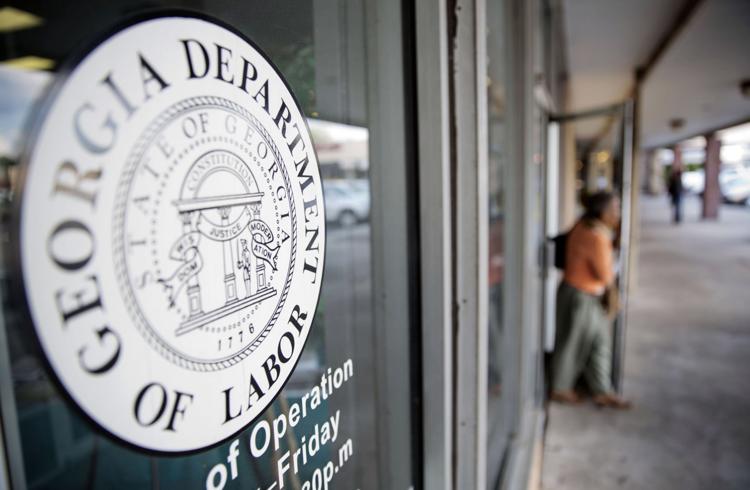Taxpayers could bear brunt of depleted Georgia unemployment trust fund

David Goldman / AP
(The Center Square) – With Georgia seeing record numbers of people filing for unemployment benefits since the onset of the COVID-19 outbreak in March, the state’s unemployment trust fund is running low.
Georgia’s unemployment trust fund had a $2.5 billion balance March 24. As of Tuesday, however, the balance was $706 million, a 72 percent drop, according to Georgia Department of Labor (GDOL) officials.
The fund will be depleted in five weeks, GDOL spokeswoman Kersha Cartwright estimated.
The state will have turn to the federal government for a loan, and taxpayers will bear the brunt of the burden, said Greg George, director of the Center for Economic Analysis at Middle Georgia State University.
From the week of March 21 through the week ending July 18, GDOL processed 1.1 million valid unemployment claims and paid out more than $2.3 billion in state benefits, the department said.
Unemployed Georgians can get up to $365 weekly and can be compensated for up to 14 to 20 weeks, according to GDOL.
The benefits are paid from the trust fund, which is accumulated from federal and state payroll taxes on employers, meaning employers pay the tax on employees’ wages.
“It comes out of the employee’s paycheck, and that’s money that the employer cannot pay the employee because they have to pay unemployment insurance, so that’s lowering wages a little bit,” said George, who also is a senior fellow at the Georgia Public Policy Foundation.
Georgia is not alone. Several states already have or are close to exhausting their trust funds and will request help from the federal government to continue providing benefits.
Those filing for unemployment will receive their benefits without interruption. However, payroll taxes most likely will increase, which has the potential to hurt not only workers and employers, George said, but also taxpayers.
“When the state has to borrow money to supplement that fund now, that’s probably general fund spending,” he said. “So it’s just a way of spreading the pain to the broader taxpayer base.”
The state faced similar circumstances during the Great Recession, borrowing $1 billion from the federal government in order to continue to pay benefits to 10.4 percent of the labor force that was unemployed.
If unemployment loans are not paid back within two to three years, states may face interest charges, according to Congressional researchers. That interest would have to be paid from the state’s general fund.
Georgia last borrowed for unemployment in 2009 and made the final payment on its loan in 2014.
Some economists have said the federal government should extend more loans to states to help pay unemployed workers. George said Congress should reduce unemployment compensation for workers to motivate them to seek jobs.
“Anytime, you boost the assistance to the unemployed, there will be more people being unemployed,” he said. “That will put additional burden on the state, and they’ll have to make up the difference.”

